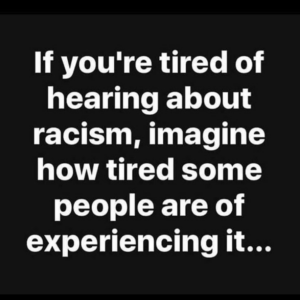I will admit, I used to think of that middle Monday in January as just a bonus 3-day weekend, something to break up the post-holiday blues, but it’s so much more!
It’s more than “I have a dream…”
It’s more than hope for a better tomorrow.
It’s more than peace and love and being kind to your neighbor.
It’s easy, with the passage of time, to forget that Dr. King was not universally beloved, that many were offended and threatened by his message and violently opposed him and his work. As I was reflecting on this day, I pulled up Dr. King’s “Letter from Birmingham Jail,” a letter he wrote after one of his 29 arrests during peaceful protests. These were nonviolent demonstrations working for, among other things, equal voting rights and desegregation.
29 arrests, one attempted murder, and a life cut short by assassination.
There are many important themes in Dr. King’s letter, especially for the Christian community of which I am a part, but one word rises to the surface: TENSION.
Dreaded tension.
“I am not afraid of the word ‘tension,’” Dr. King wrote. “I have earnestly opposed violent tension, but there is a type of constructive, nonviolent tension which is necessary for growth.”
In fact, growth requires some tension. Muscles grow by tearing and reforming. Children learn new skills not just when they are supported unconditionally, but when they have that “just right” amount of challenge. More just laws—or more oppressive ones—happen because of tension.
Are you feeling that tension?
- School board arguments over curriculum.
- Rethinking who we honor and how.
- The discomfort of unearthing long-held biases and beliefs.
Dr. King’s letter was a response to a group of white religious leaders who were “concerned” about the demonstrations in Birmingham, efforts to dismantle unjust systems that restricted voting rights and dehumanized Black citizens. Demonstrations that created tension.
It’s easy to want to throw blame around, but Dr. King has some words for us about that as well.
“Actually, we who engage in nonviolent direct action are not the creators of tension. We merely bring to the surface the hidden tension that is already alive.”
Our brains struggle with change, especially if we have benefited from some aspects of how society is structured. I have always seen faces that look like mine and voices that sound like mine in positions of power (we can chat about sexism another time!). That is not true for everyone in this country!

Let’s do the hard work of wading through the tension
Let’s truly listen to others so we might find our path forward to a more just society. Looking for ways to learn more or update your teaching on this topic?
- Parents, check out Jasmine Bradshaw’s round up of helpful First Name Basis podcast episodes.
- The NEA’s student engagement tips and tools is a great place to start for K-12 educators.
- LaNesha Tabb also has loads of ideas for elementary ages.
- And last but certainly not least, The King Center, founded by Mrs. Coretta Scott King, has annual events around the King holiday as well as classroom resources.
I often say that I’m glad we are in this together. On this holiday weekend and always, may we carry on the work of Dr. King and other BIPOC visionaries who create tension. It may be uncomfortable, but that’s the only way progress happens.
“Lamentably, it is an historical fact that privileged groups seldom give up their privileges voluntarily…Just as Socrates felt that it was necessary to create a tension in the mind so that individuals could rise from the bondage of myths and half truths to the unfettered realm of creative analysis and objective appraisal, so must we see the need for nonviolent gadflies to create the kind of tension in society that will help men rise from the dark depths of prejudice and racism to the majestic heights of understanding and brotherhood.”
Dr. Martin Luther King, Jr